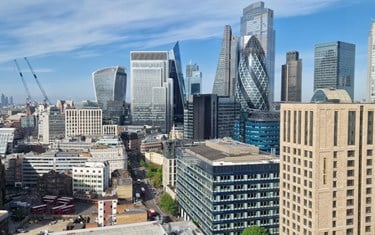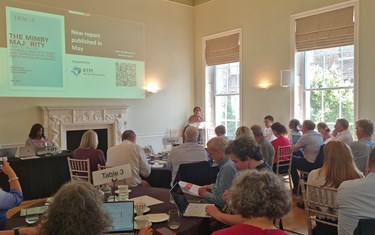Our election commentary continues with a more detailed assessment of the political parties’ manifestos in Northern Ireland from the RTPI's Northern Ireland Policy Officer Joanna Drennan and Policy and Practice Adviser Eddie Millar.
 Here, we look at the manifestos of the political parties of Northern Ireland and explore how their proposals relate to the RTPI’s Planifesto.
Here, we look at the manifestos of the political parties of Northern Ireland and explore how their proposals relate to the RTPI’s Planifesto.
The planning system in Northern Ireland is devolved to the Northern Ireland Assembly, which limits the changes to planning in Northern Ireland that can be proposed by the government of the United Kingdom. This means that much of the way planning functions in Northern Ireland is not controlled by Westminster. Planning reform is relatively under-addressed within this set of manifestos, and from a planning perspective, the focus is largely on climate related objectives.
Properly resourcing planning
The first call of the Planifesto is funding councils to deliver high quality planning services. Unfortunately, improving the capacity of the planning system through resourcing is not a key feature of the parties’ manifestos.
Sinn Féin propose ‘an end to the chronic underfunding of our public services’, but this does not specifically mention planning. The DUP (Democratic Unionist Party) pledge to improve public sector pay, but again, with no reference to planning. The SDLP (Social Democratic and Labour Party) focus on reforming the planning system to expedite housing and climate adaptation developments, but this proposal does not include any mention of resourcing or funding. The Alliance Party and the UUP (Ulster Unionist Party) do not make reference to resourcing the public sector at all.
We are disappointed at the relative lack of focus on resourcing the planning system and feel that all parties could go further here.
Strategic planning and coherent growth
Sustainable development does not appear to be a key focus of the manifestos. The RTPI feels strongly that coordinated, strategic planning is necessary to help create connected and sustainable communities, aligning transport planning and land use planning objectives as well as encouraging non-car travel. The new Local Development Plans provide a key opportunity to embed sustainable development principles and behaviours. The DUP makes brief reference to larger-than-local collaboration, calling for ‘structured working between levels of government’ to improve active travel infrastructure.
Planning for Net Zero
The Planifesto focuses on utilising planning to drive renewable energy infrastructure and sustainable technologies. It also argues for integrated retrofitting, as well as the introduction of Local Environmental Improvement Plans.
Climate-related pledges feature most prominently among parties’ manifestos. Alliance proposes investing in renewables alongside a just transition to net zero, while banning fracking and new coal pits. Furthermore, they propose a UK-wide emergency programme of retrofitting to reduce the energy consumption of homes.
The DUP are committed to phasing out fossil fuels and say they will continue to support the UK’s long-term net zero ambitions. They propose a ‘strategic national approach’ to shaping the production of clean and renewable energy production across the UK. Their manifesto also includes plans to double the size of Northern Ireland’s low carbon and renewable energy economy, utilising a new Hydrogen Innovation Strategy to build on Northern Ireland’s work on hydrogen usage within transport.
The other parties have fewer climate and net zero pledges. The SDLP show their support for ambitious climate legislation focusing on a just transition. They also propose reforming and streamlining the planning system to expedite climate change adaptation projects, although they do not specify how they would achieve this.
Sinn Féin state their desire to meet climate change targets through a fair and just transition to net zero, while the UUP support large reductions in greenhouse gases by 2050 and endorse the UK’s Ten Point Plan for a Green Industrial Revolution.
Given its prominence within the Planifesto, we are pleased that retrofitting is mentioned within parties’ plans. Furthermore, the proposal for a strategic national approach to energy production is encouraging. Although all parties include green or climate related aims within their manifestos, proposals around climate and net zero are slightly lacking in detail.
Conclusion
We are somewhat pleased with the number of Planifesto asks included within the political parties’ plans for Northern Ireland. Beyond climate and net zero, there is a lack of specific reference to the need to properly resource planning authorities within local councils, and there is no mention of the need to properly resource statutory consultees or the Planning Appeals Commission, both of which play an essential role in delivering planning services.
Up to the General Election and beyond, we will continue to work as the collective voice of the profession and support the next Government to realise the full potential of planning within Northern Ireland.


